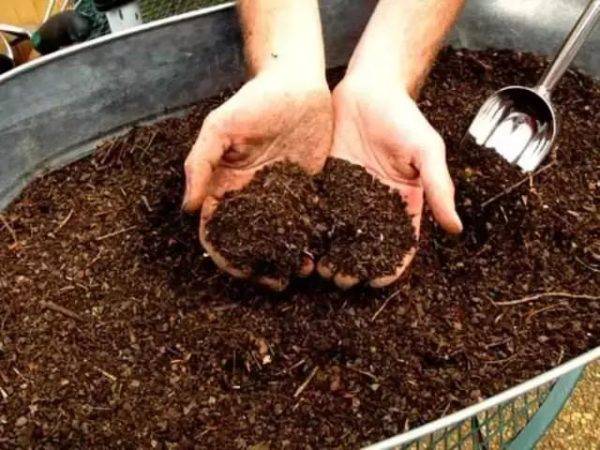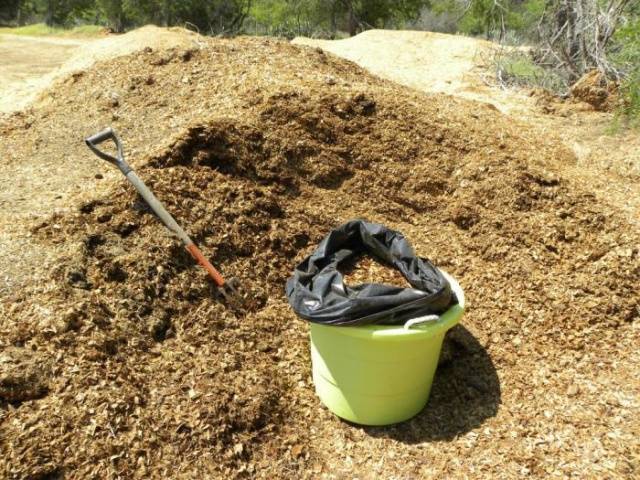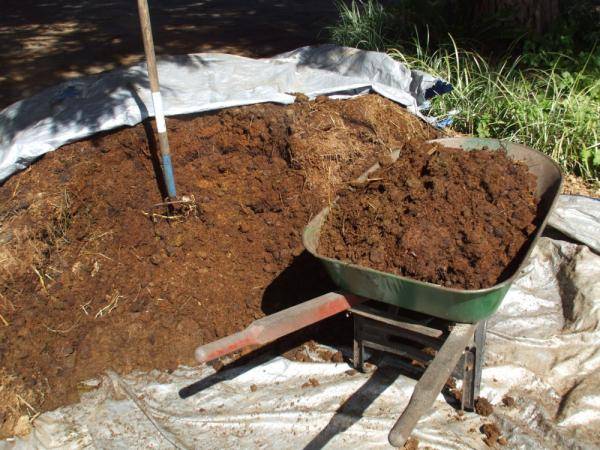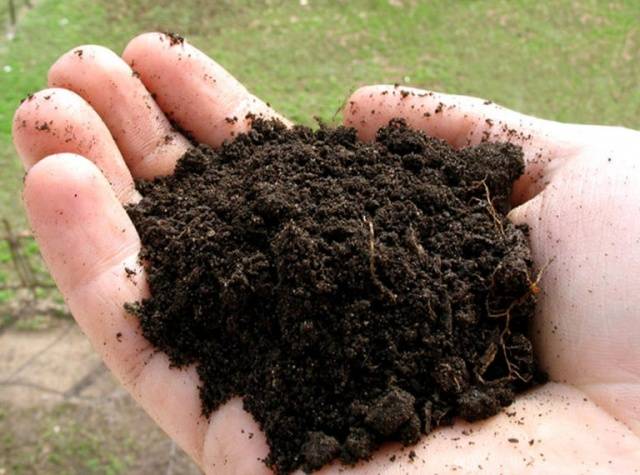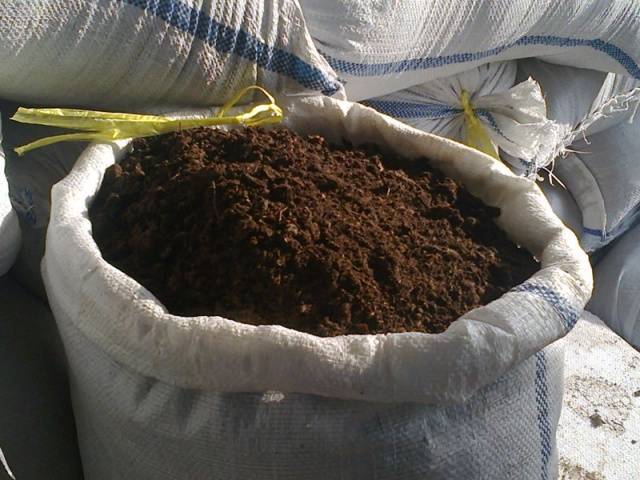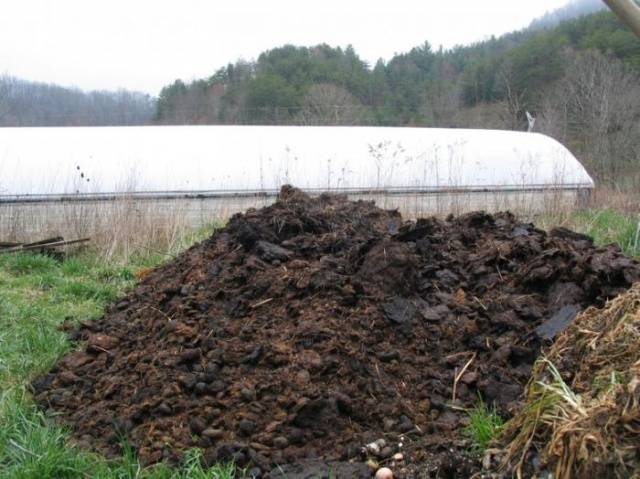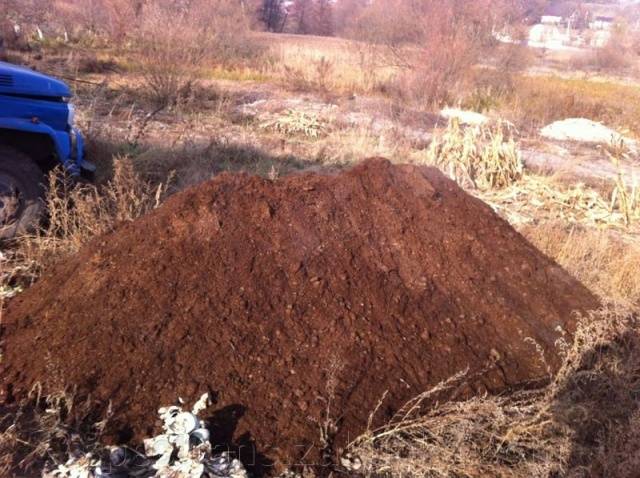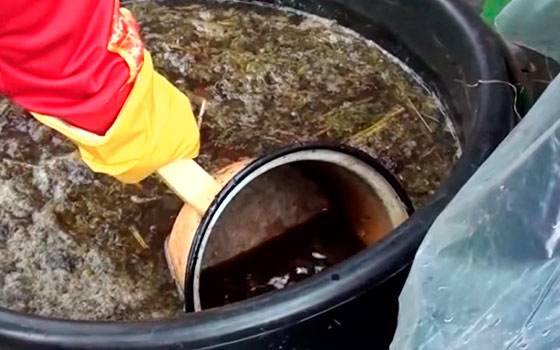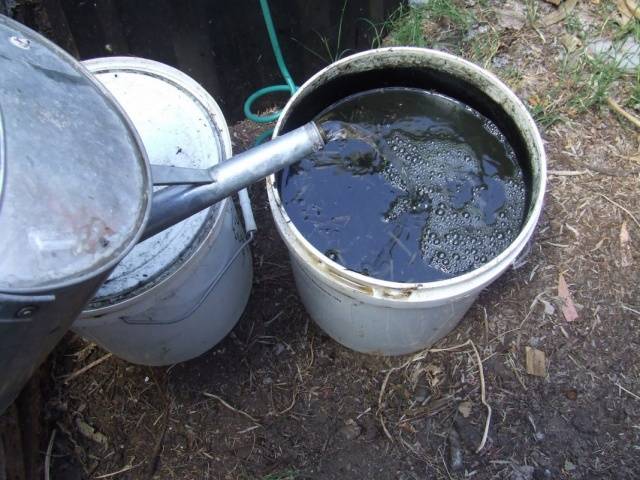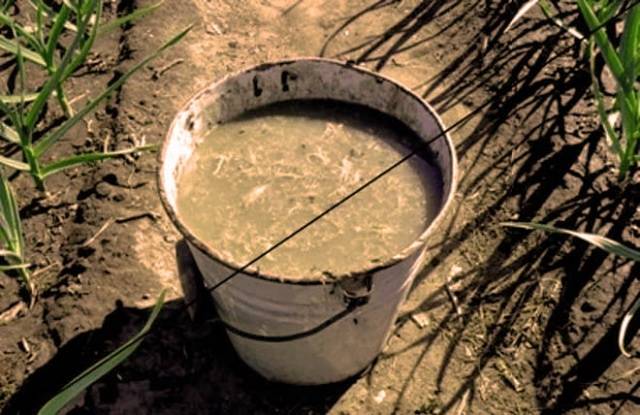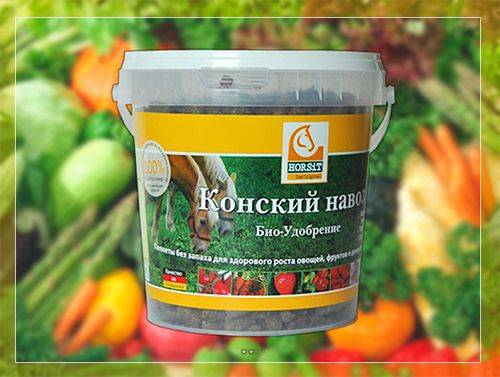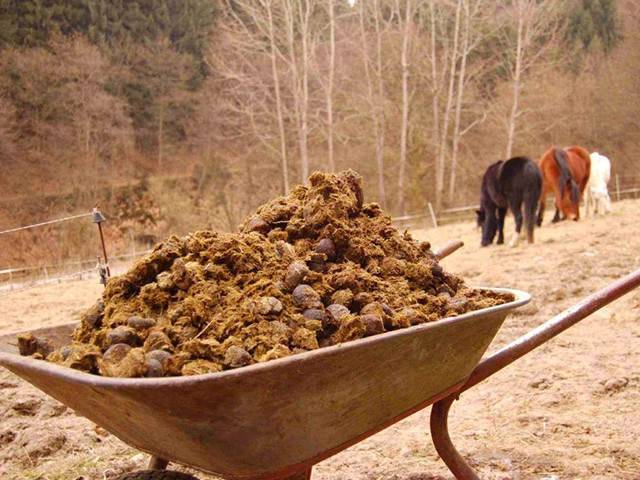Content
Today, the agricultural industry offers gardeners and gardeners a huge selection of various fertilizers - organic and mineral. However, many experienced farmers prefer to use horse manure as fertilizer. They know perfectly well how to use it to get consistently high yields.
The long-term use of horse manure in the agro-industrial sector has long proven its undoubted benefits for increasing the productivity of agricultural crops, as well as increasing their resistance to various diseases.
Horse Fertilizer Benefits
Gardeners use other types of natural fertilizers, but when choosing which manure is better - chicken, horse or cow manure, many prefer horse manure. It differs in:
- greater dryness and lightness, which allows you to loosen heavy clay soils;
- rich in the most important mineral elements;
- higher decomposition rate compared to cow or pig manure;
- water-retaining effect on light sandy soils;
- good heat dissipation;
- low content of weed seeds;
- resistance to pathogenic microflora.
However, in some cases, it is undesirable to use horse manure:
- if the mass is covered with a fungal bloom, it is useless for warming the soil;
- horse manure that has not decomposed to the end releases too much ammonia and is harmful to cucumber beds;
- when using this organic fertilizer, scab can appear on potato fields;
- at high soil density, manure slowly decomposes with the release of methane and hydrogen sulphide and can damage the roots of plants.
Types of horse manure
The organic mass can be used in various forms and at any stage of decomposition.
Fresh manure
Fresh humus is easy to identify by its appearance - it contains undecomposed plant residues. Over time, the mass will become more uniform in composition and darker in color. The use of fresh humus as fertilizer can have negative consequences for plants, since:
- it will suppress their development and may even burn the roots due to high heat transfer;
- the manure contains fresh weed seeds that will quickly germinate in the garden;
- spores in the fresh mass can cause fungal diseases.
Manure application in autumn
It is better to apply fresh horse manure to the beds in the fall, when the entire crop has already been harvested. By spring, it will decompose and become an excellent seedling feed. The application of manure to the beds in the fall should be accompanied by their quick digging so that a significant part of the nitrogen contained in it is not lost. Mixing with straw and a small amount of ash, you can use this substrate:
- cover tree trunks for the winter;
- fall asleep in the aisles of berry crops;
- make a "warm bedding" under the cucumber or cabbage beds.
Spring use
In spring, fresh horse manure is used as an indispensable biofuel for greenhouses. The heat released by it during decomposition evenly warms the beds during the cool spring months, and carbon dioxide saturates the soil and loosens it, making it airy.With the help of the warm beds arranged in this way, it is possible to grow watermelons even in the cold northern regions.
In spring, fresh manure can also be used:
- for carrying out liquid dressings, mixing with water;
- mixed with mineral fertilizers;
- for composting horse manure and sawdust, straw, fallen leaves.
Rotten manure
With a semi-rotted organic mass, you can:
- feed garden crops - zucchini, cabbage, cucumbers;
- fertilize flower beds;
- mulch rose bushes;
- diluted with water, apply as liquid dressings;
- use when digging beds.
With rotten manure, the color darkens to almost black, and the weight is almost halved. It is a fertile substrate that is used:
- when preparing the soil for seedlings;
- for fertilizing vegetables and garden trees.
The last stage of decomposition
At the final stage of horse manure decomposition, humus is formed - a valuable organic fertilizer, which:
- is a universal top dressing for all garden and horticultural plants;
- significantly accelerates their growth and development;
- improves the taste of most root vegetables, for example, radishes and onions lose their bitterness when used;
- improves soil structure;
- increases the productivity of fruit trees;
- can be used for mulching.
Storage methods
It is important to ensure proper storage of the manure. Then it will contain a richer content of useful elements. There are two methods for storing a substance.
The cold method is more preferable, as it allows you to store more nitrogen and prevent overheating of the mass. Stacking of organic matter should be carried out in the following sequence:
- dig a spacious hole or arrange a fence;
- fold plant residues in it in layers - straw, leaves or sawdust and fresh horse manure;
- it is advisable to spread a layer of peat at the bottom to absorb the escaping slurry;
- the thickness of each layer is 15-20 cm;
- earth or peat is poured over the layers;
- the stack is covered with a film to protect it from moisture or dryness.
With the hot method, the mass of manure is simply covered in heaps, which are open for free air penetration. Under its action, microflora actively multiplies in them and there is an intense loss of nitrogen. After a few months, the mass will decrease in volume and become loose and light.
Liquid dressing
A solution of liquid horse manure is often used as a fertilizer. To prepare it, you need to pour a mixture of straw or sawdust with fresh organic matter with water and leave for two weeks, stirring occasionally. This infusion is an effective root dressing for vegetable crops. It should be carried out after abundant watering of the beds. You should not prepare too saturated manure solutions - they can damage the plants.
Even faster, liquid top dressing can be prepared from humus by infusing it with water for 2-3 days. When used, the ready-made infusion must be diluted twice with water. Periodic top dressing with liquid horse manure will provide garden crops with rapid development and high yields. You can enhance the effect of the infusion with nettle. It is rich in trace elements. However, this infusion is not recommended for plants that prefer acidic soils.
Application as an extract
Today, a highly effective fertilizer can be purchased in any form and in convenient packaging: in bags where it is located:
- dry;
- as organic fertilizer in granules;
- diluted in bottles.
Horse dung extract has become especially popular. The instructions for its use recommend using it for root and foliar dressing and for all types of soils.The product is obtained by extraction from manure using a special purification technology. Manufacturers guarantee when using this fertilizer:
- high germination of crops;
- excellent survival rate of transplanted seedlings;
- rich harvests of vegetable and fruit crops.
Top dressing with liquid fertilizer is carried out in dry weather every two weeks. Treatment should be done early in the morning or after sunset. Before use, the solution must be diluted according to the instructions.
Reviews of gardeners and gardeners
Conclusion
When used correctly, horse manure is an effective fertilizer for a variety of crops. But it must be used taking into account the composition of the soil and the type of garden crops.
